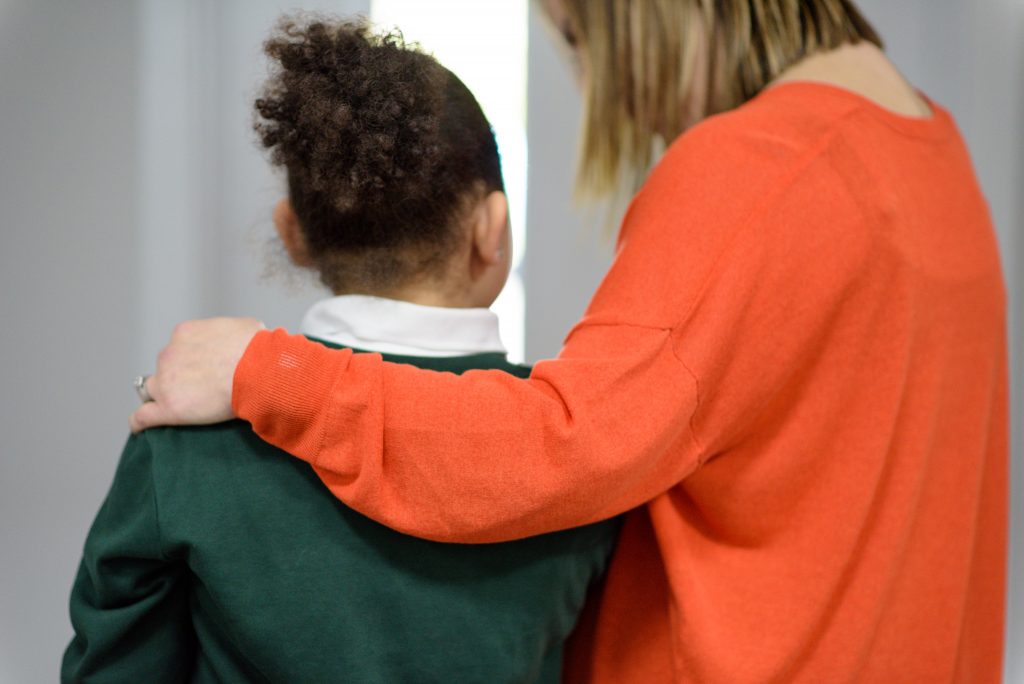NFPS Level 2 Award Certificate in Reducing Restrictive Practices, Trauma Informed Practice and Positive Handling Training




Legally Defensible Training
Assessed For Risk
Health & Safety Compliant



Medically Reviewed Physical Techniques
Non-Restrictive Techniques
Evidence-Based Success
Two-Day Training Guarantees Total Compliance With Current Restraint Reduction Standards
The training covers all health and safety legislation required by employers, includes structured learning and assessment, and clear guidance needed for risk assessments.
On completion staff will be equipped to carry out positive handling and safely and securely intervene with physical techniques, as and when necessary, and only as a last resort, after behaviour management strategies taught and de-escalation techniques have been employed.
Positive Handling Training
Positive Handling Training follows clear and very specific physical intervention, conflict resolution and risk management and assessment methods used across a range of industry sectors, including the NHS, Education, Housing Associations, Security Agencies and the Ministry of Justice.
Training sessions are reviewed to ensure for robust quality standards which are in line with DfE policy guidelines and legal requirements.
Compliance Met In All Areas Relating To The Positive Handling of Children:
- Relevant DfE and health and safety policies
- Recording templates and legal considerations
- Understanding the causes of aggression and conflict
- Staff self-awareness and self-control whilst managing disruptive and challenging behaviour
- Behavioural management strategies and techniques that minimise risk
- Protective and personal safety techniques
- Positive physical interventions, including; assisting, guiding and holding
- Processes of learning, support, reflection and repair for all involved (including de-briefing with both service users and staff involved)
- Practical techniques for individuals and teams in school-based situations.
Safe System of Work For All School Staff
Our specialist trainers offer an appropriate ethical and moral approach to empower all school leaders and staff to safely and positively deal with a wide range of complex needs, including Social, Emotional and Mental Health needs and specific learning difficulties.
Confidential ongoing support is provided with professional and experienced guidance and advice. All training materials are provided, with informative templates and real-life scenarios explored in a safe environment.
Trauma Informed Practice, Behaviour Strategies, Techniques and Best Practice
Behaviour is a form of communication, and understanding behaviour and relying on a trauma informed practice is critical to embedding confidence to interpreting and appropriately using positive de-escalation techniques.
Staff will approach all communication with children from a Trauma Informed background and will have the empathy and understanding to employ de-escalation techniques.
Staff will feel supported and able to help children find positive ways to communicate their needs to others, by applying easy to learn and simple to use techniques underpinned by law and clinical research. Consistent guidance is a good investment of time and money and sends a strong message to school leaders that the wellbeing of their workforce is important.
The training supports children with strategies that enable them to self-regulate prior to applying intervention. Pupils will benefit from important social and problem-solving skills that will help them throughout their lives.
Course Overview
The course overview is as follows:

Day 1: Understanding The Law, Legislation and Risks Associated with Positive Handling and Trauma Informed Practice


Module 1: The Law & Risks Associated With The Physical Control of Children
Module 1 Aim: To focus on the knowledge, skills and judgment required by staff who may need to consider the physical restraint of pupils in a school setting as a last resort when all else has failed.
Module 1 Objectives:
- Understand what the government guidance says
- Understand the law relating to disengagement and physical intervention
- Know how to recognise inappropriate or abusive use of restraint
- Understand when physical intervention is required (Duty of Care)
- Understand how to minimise the risks if physical intervention is used

Module 2: Trauma Informed Practice

What is Trauma Informed Practice?
The ultimate aim of trauma informed practice is to raise awareness amongst all staff to understand that all behaviour is a form of communication. Some children may not have the vocabulary to explain or may be too scared to articulate what has happened to them. It is about thinking differently with empathy and understanding, whilst prioritising the well-being of all.
A trauma informed school is one that approaches all interactions as an opportunity to strengthen relationships and to foster positive thinking habits.
Why is Trauma Informed Practice Important?
Physical restraint, isolation and forced punitive consequences are still a regular feature of the way that children’s behaviour is managed in many schools in the UK today.
Unknowingly, staff may approach challenging behaviour with strategies that are reminiscent of the child’s original abuse. This is done with the intention of reshaping and correcting and with the aim to improve behaviour outcomes. This approach only serves to breakdown relationships between staff and children, leaving staff feeling overwhelmed and only deepens the child’s physical and emotional distress.
It goes without saying that such experiences worsen a person’s chances of lasting recovery, not least because they discourage or altogether stop them from seeking support again in the future.
Trauma informed practice helps school staff understand the root of the child’s behaviour and if used as a whole school approach can reduce the need to use any further restrictive practice.
In summary, a trauma-informed organisational approach towards positive handling pursues an approach in all areas to prevent the replication of traumatic experiences.
Module Aim: To reduce the need to use any restrictive practices by understanding and applying the principles of Trauma Informed Practice.
Module 2 Objectives:
By the end of this module you will understand:
- Attachment theory and its origins;
- Attachment theory in practice (including an overview of secure and insecure attachments);
- Neuroscience and what research has taught us;
- The Fight, Flight and Freeze Response and How It Leads to particular Behaviours and heightened anxiety levels in children;
- Using and applying de-escalation strategies;
- Maintaining and preserving positive communications with children (a restorative approach);

Module 3: Low Level Disengagement Training
Module 3 Aim: The aim of this module is to provide the learner with a range of simple disengagement techniques to enable a member of staff to break-away safely from various grabs and holds that a child may place upon you whilst minimising any harm to the child


Day 2: Low Level Positive Handling Training
Day 2 Aim: The aim of day 2 is to review the low level disengagement skills taught in module 3 on day 1 and teach the low level positive handling skills required to safely and humanely physically hold a child for the child’s safety or for the safety of others.
Day 2 Objectives:
By the end of day 2 you will have learned to use low level for:
- Prompting and escorting a child;
- Safe holding of a child;
- Seated holding of a child;
- What to do if a medical emergency occurs;
- What to do if a child goes to the floor during an intervention.
Medically Reviewed Techniques
All of the skills and techniques that will be taught on this programme have been subject to ongoing medical reviews by Dr. Tony Bleetman and have been assessed as being fit for purpose for use with children and young people.
Course Certification
On successful completion of this course you will receive a NFPS Level 2 Award Certificate in Reducing Restrictive Practices, Trauma Informed Practice and Positive Handling Training.

Restraint Reduction Feedback - How Trauma Informed Practice Actually Works!

A 70% Reduction in Restraint! - Proof of how Trauma Informed Practice has reduced restraint since it has been implemented
“The number of incidents logged on our monitoring system has significantly reduced over the course of the last two years.
The picture of physical intervention in our school two years ago was not an effective or productive picture.
The learning mentors were responding to calls on walkie talkies and senior leaders were continually called out of meetings to intervene with behaviour.
Staff, teachers in particular, did not feel like they could always deal with behaviour incidents and would call on help.
This led to unnecessary and very often avoidable physical intervention from staff members, it damaged the relationships between children and senior leaders and learning mentors as they were continually used to impart punitive consequences, to remove children from class or where behaviour had escalated beyond all reasonable control physical intervention to prevent children hurting themselves or others.
This cycle of negative response to behaviour had no impact on reducing the incidents as children were not being equipped with the tools to self-regulate, they did not feel listened to or understood and they were heightening the emotions of children around them who then saw this as a legitimate way to respond.
As a result, physical intervention was taking place daily and, in some cases, multiple times within a day.
We are now in a position where physical intervention is rarely used. In the last month, there has been one physical intervention with a child who has SEND who was hurting themselves and the intervention simply took the form of a hand placed over a cupboard so they could not hurt their head.
This is the position we are now in as a direct result of being a TIP school.
Learning mentors no longer deal with behaviour issues, long gone are the walkie talkies, as staff now have the confidence to interact positively with children when dealing with behaviour.
Where before the learning mentors were on patrol responding to ‘red cards’ they now have a consistent timetable of mentoring sessions which again has meant there is positive intervention and interaction before a situation can escalate.
Senior leaders now have positive interactions with children across the school because they are no longer having children sent to them as a ‘punishment’, but children are sent to senior leaders daily to show them good work or to tell them about something positive they have done or said that day, again this has only sought to strengthen the relationships and the trust that children have in adults across the school.
The approach we use is a preventative one and our belief is that ‘Every interaction is an intervention’.
As a result of being a Trauma Informed School, restraint reduction has continued to decrease significantly and physical intervention has reduced by around 70%.”
An outline on how the impact of Trauma Informed Practice has improved the life of the children in one school
“The impact of TIP on the children in our school has been far reaching.
The communication and relationships that they have with staff members has strengthened since we implemented our programme of training.
Children know that they will be listened to.
Not only has it ensured that our staff are consistently calm in their reactions to children’s behaviour but it has enabled children to further develop their confidence and trust in staff as they know that staff will always respond to them with kindness and will not seek to call on them publicly or embarrass them for their behaviour.
This has led to greatly reduced incidents of low-level behaviour across the school where children no longer seek to communicate in this way as they now have the strategies and relationships to communicate on their terms.
Given the restorative approach, children know that regardless of the behaviour demonstrated that they will always be listened to and will have the opportunity to be heard and will not be accused of anything.
Most importantly, children have trust in the adults around them that they can make mistakes with their behaviour and it remains an experience that they can learn from, by reflecting on this and taking part in restorative conversations, it does not label them as ‘naughty’ or ‘difficult’ and the staff consistently reiterate that they know the good in children and know what they are capable of (this forms part of our micro-script as it is important that children do not lose self-esteem through addressing behaviour concerns when they arise).
We only ever speak about the behaviour and not the child. The two do not go hand in hand.
Since initiating our TIP we have had no exclusions in our school (both fixed-term and permanent).
Academic achievement has been difficult to measure due to the pandemic, but given our extremely deprived circumstances, the resilience of children has not diminished and their confidence and comfort in school returned almost immediately and we put this down to the trust they have in staff and the knowledge that they are treated with understanding and respect regardless of the behaviours that they demonstrate.
Children are equipped with a tool-box of strategies that they can draw on if they find themselves in difficult circumstances.
All achievements are recognised, children know that all achievements they make, no matter the size will be recognised, this supports growth in their emotional resilience, pride, self-esteem and confidence and it has empowered children to talk about their feelings and emotions confidently with trusted adults, and they all have trusted adults across the school that they know they can talk to ranging from office staff, dinner ladies, learning mentors, support staff, teachers and senior leadership – this is because all members of staff have been trained to approach with understanding and respect for the child.
Children are confident that the safety of their physical, social and emotional well-being will be a priority for any staff member.”
An outline on how the impact of Trauma Informed Practice has impacted staff in one school
“Staff are unified under a consistently calm approach to behaviour management, they have the knowledge and understanding and therefore confidence to positively deal with behaviour.
Staff understand that all behaviour is a form of communication and so now prioritise their communication with children across the school day.
The training we have had has reiterated that what is perceived as ‘bad’ behaviour is simply a lack of vocabulary to describe something that may have happened, or they may be too scared to articulate – staff know that our children will find a way to inform us because we take the time to listen.
Viewing behaviour in this way has enabled responses to move away from the punitive and towards the restorative.
Thinking of a child as distressed or struggling as opposed to ‘naughty’ enables us all to respond differently and from a place of empathy.
Staff in our school experience greater confidence in addressing all types of behaviour, where staff are now all aware of where children are coming from, the discussions and reparations that happen across the school have developed stronger relationships and opened the way for communication and respect.
All staff know that it is their responsibility to address behaviour in a calm and consistent manner using clear, positive language to seek to repair and restore rather than seek punishment.
High expectations are made explicit and clear boundaries are put in place in a positive manner where the staff member is assertive and in control without being confrontational or accusive.
As such, this has greatly influenced our whole school approach to behaviour management and our policies and practices, we have filtered training to all staff, we have adapted working practices and we have ensured that children are at the heart of all decisions taken.
We worked closely with staff to shift mindsets around punitive consequences and this paved the way for frank and open conversations around whose interests were served with ‘punishments’.
This was part of the ongoing issue we had around behaviour initially and the constant ‘call-outs’.
Staff would want to know what the punishment was and would insist that there be certain consequences to fit certain behaviours, this led to senior leaders responding with punishments as a way of supporting that staff member and only increased the inconsistencies and damaged relationships with children.
As a result of the ongoing and continued discussion, the extensive CPD and the reviewed policies and practices we are now in a place where the whole school culture and mindset is one of seeking to protect a relationship with the child as a priority, seeking to understand not punish and seeking opportunities to continually build trust and respect.
This culture and mindset now informs part of our induction process, it supports staff well-being in that they want restoration and behaviour does not now escalate to a place of the staff member seeking punitive consequences as a sign of respect, but of having strength of mutual respect in the first instance and seeking to better understand that child and using the interaction of addressing behaviour concerns as yet another opportunity to further build on this relationship.”
Testimonials From People Who Have Undertaken Trainer Training Courses With Us Who Work in Schools
“Hi Mark,
I just wanted to give you a little feedback about NFPS positive handling training. I have been working with you for many years now, this is our twelfth, and I always look forward to our yearly refresher training sessions and conferences.
I train all my staff NFPS Positive Handling Techniques and many Primary Schools across Cheshire East. The training is legally defensible and has been thoroughly medically reviewed to be used with Primary aged children.
What I personally like about the techniques are the fact that they are simple and straightforward but effective. Staff understand when to and when not to use positive handling techniques and when they do so with a full understanding of the legal and medical implications.
As a Head Teacher I know that the techniques used will keep our children and staff safe. I feel secure that should any situation arise you will be there to support.
Thank you Mark for always being there. If I ever have any questions, you always find me a solution and quickly.
Keep safe and take care
Mr Damien Sweeney
Headteacher of The Cornerstone Academy
The Cornerstone Academy
Youth Engagement Schools Trust”
Other Testimonials From Staff Who Have Taken Part In The Training
These are testimonials from staff who have taken part in this course when asked to summarise what they will take from this training:
“You cannot plan for behaviour – be flexible.”
“Come in with a positive, calm and considerate approach. Giving even more time and patience to all children.”
“I feel prepared for the barriers children will enter with.”
“The importance of my response and position.”
“I now have the ability to understand trauma in children and support it with a positive attitude and skills.”
“Strategies for building relationships with and instilling confidence in the children that I will be teaching.”
“Understanding, patience and love, with myself and the children.”
“Consistency, care and patience.”
“Your behaviour and responses shapes how your class behave. Ensure the best approach is always taken with patience and care at the forefront of your mind.”
“Inspired by new ways of teaching and supporting children through their traumas.”
“Well-being is the priority.”
“Pro-activeness.”
“Confidence.”
“Feeling supported in my duty to support the children.”
“Prepared for the challenges of my role and responsibility in supporting children.”
“Using the cues to assist/ support children when they are feeling a certain way.”
“Awareness, kindness, patience and the ability to go forward at the best of my capabilities.”
“An improved way of presenting information to children which also enables them to communicate more effectively with teachers and support staff.”
“Skills to use positivity and feeling prepared.”
“I feel supported to find the best possible way of learning and supporting our children.”
“Every interaction is intervention really stood out to me and thinking about how every interaction I have with a child has an impact and making sure that the impact is positive.”
“Confirms underlying school ethos and prepares us well for coping with pupil’s individual experiences … and how there is no correct route to supporting children, you respond to what is presented and address in the way that you feel is appropriate to the individual needs of that child.”
“To ensure the children that I work with know that I will work hard to ensure I never unwittingly contribute to traumas they have faced with my interactions with them – and to ensure that I use every interaction as an opportunity to strengthen the trust and relationships built.”
